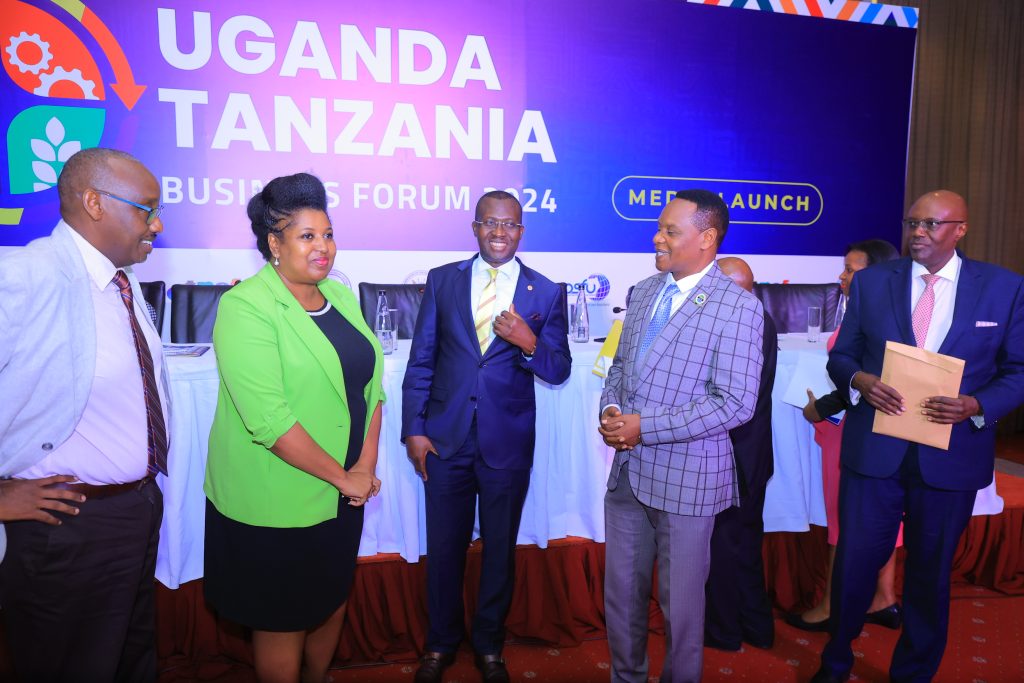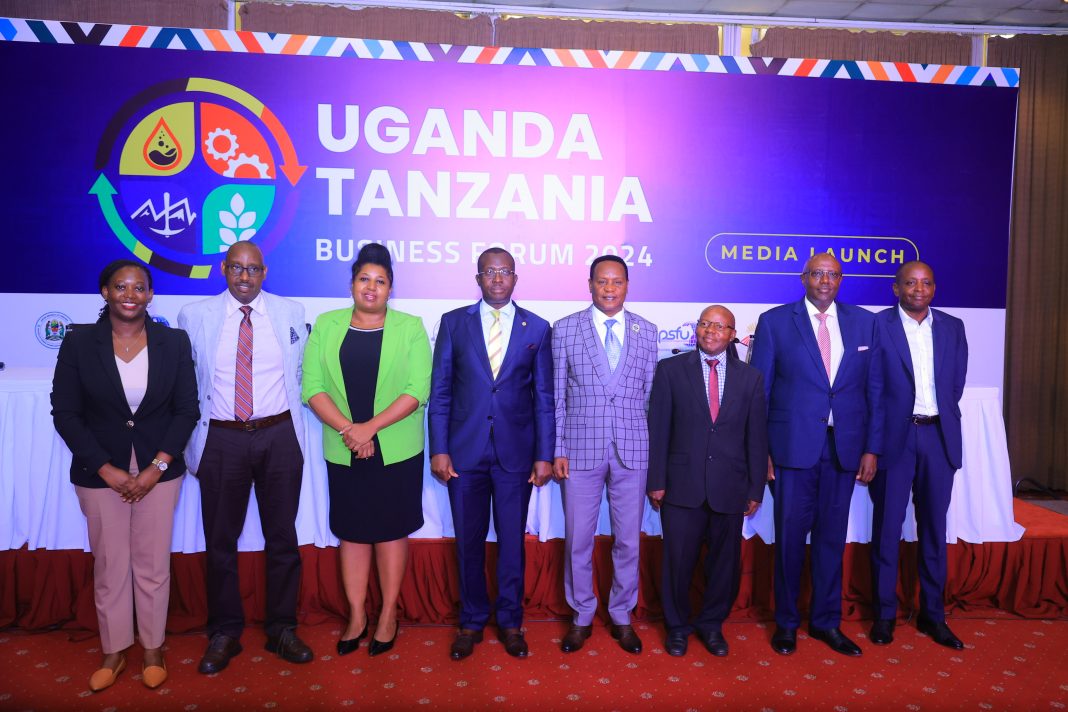In another win for Commercial Diplomacy, Uganda and Tanzania are preparing for the 2nd Uganda-Tanzania Business Forum, scheduled from the 23rd to the 24th of May 2024 at the Johari Rotana Hotel in Dar es Salaam. This announcement was made by the Ministry of Foreign Affairs at a Media Launch this morning at the Kampala Serena Hotel. The event, themed “Enhancing our win-win bilateral partnership,” aims to strengthen the longstanding ties between the two nations and foster economic cooperation.

Hon. John Mulimba, Minister of State for Foreign Affairs in Charge of Regional Affairs, who gave a keynote address, emphasised the forum’s significance in strengthening bilateral relations. He highlighted the historical camaraderie shared since the 1960s, citing joint liberation efforts and strategic partnerships in various sectors such as trade, security, education, agriculture, and energy. “The Forum, a collaborative initiative between our governments and private sector stakeholders, builds upon the success of our inaugural gathering in 2019,” Hon. Mulimba said. “It is a vital platform for promoting trade, investment, and partnership opportunities between Uganda and Tanzania.”
The upcoming forum seeks to capitalise on the immense business potential of collaborations like the East African Crude Oil Pipeline project, which is projected to generate substantial revenues and job opportunities in both countries. The event aims to raise awareness about investment opportunities in priority sectors, including extractives, agriculture, manufacturing, and tourism, through interactive sessions and presentations.

Ambassador Col (Rtd) Mwesigye Fred, the Ugandan High Commissioner to Tanzania, in a statement delivered by Ms. Laura Kahuga, Counsellor at the Uganda High Commission, Dar Es Salaam, reiterated the forum’s objective of attracting investments for sustainable growth, industrialisation, and job creation. “By prioritisingopportunities in sectors like agribusiness, manufacturing, tourism, and energy/oil & gas, we aim to capitalise on the immense potential for collaboration between our nations,” he said.
Martin Muhangi, Director of Investment Promotion & Business Development at the Uganda Investment Authority (UIA), emphasisedthe private sector’s pivotal role in driving economic growth. “We are keen to highlight specific investment opportunities in Uganda, including agro-value addition, manufacturing, mineral value addition, tourism, and science and technology,” Muhangi stated.

The Forum will feature a two-in-one format comprising a Trade Exhibition and an Investment Forum, enabling participants to showcase their capabilities and explore potential collaborations. With a focus on fostering partnerships and facilitating market access, the event aims to unlock new avenues for trade and investment between Uganda and Tanzania.
In conclusion, the 2nd Uganda-Tanzania Business Forum underscores the commitment of both nations to deepen economic ties and create a conducive environment for business growth and innovation. By leveraging their comparative advantages, Uganda and Tanzania are poised to realise shared goals of sustainable development and inclusive growth.
Salient features
1. Incentives for Tanzania Investors: Tanzanian investors are considered domestic investors in Uganda, entitling them to benefits such as a 10-year tax holiday and access to land in gazette industrial parks equipped with essential infrastructure.
2. Promotion of Specific Opportunities: we aim to highlight specific investment opportunities in key sectors such as agro-value addition, manufacturing, mineral value addition, oil and gas, tourism, and science and technology.
3. Track Record of Success: Over the past five years, Uganda has attracted 12 significant projects amounting to USD 474,191,143 in investment, contributing to creating 7,465 jobs.
4. Collaborative Efforts: Uganda works with government stakeholders, diplomatic missions, and the private sector to promote and increase investments in priority sectors. Their focus remains on fostering partnerships and enhancing market access for investors.
5. Official Adoption of Swahili: Uganda has officially recognisedSwahili as its second official language. The language has been reintroduced into the national curriculum and is being taught in schools. To demonstrate the seriousness of the language adoption, the government has dedicated weekly lessons on Swahili at the cabinet level. Additionally, statements and speeches are now directed to be delivered in Swahili, emphasizing the commitment to linguistic integration and people-to-people diplomacy.
6. Infrastructure Developments: Following the Prime Minister’s directive, the Mutukula Masaka road is slated for rehabilitation. This development aims to improve transportation infrastructure and enhance connectivity.
7. Transport Cost Reduction: The Standard Gauge Railway (SGR) infrastructure project in Tanzania, particularly the line from Dar es Salaam to Mwanza, is anticipated to reduce transport costs by 40%. Furthermore, charges on trucks from Tanzania to Uganda have been harmonised with EAC regional tariffs, reducing fees from $500 to $140.
8. Private Sector Support: Organizations like the Private Sector Foundation Uganda (PSFU) and the Uganda Investment Authority (UIA) actively facilitate trade and investment.























